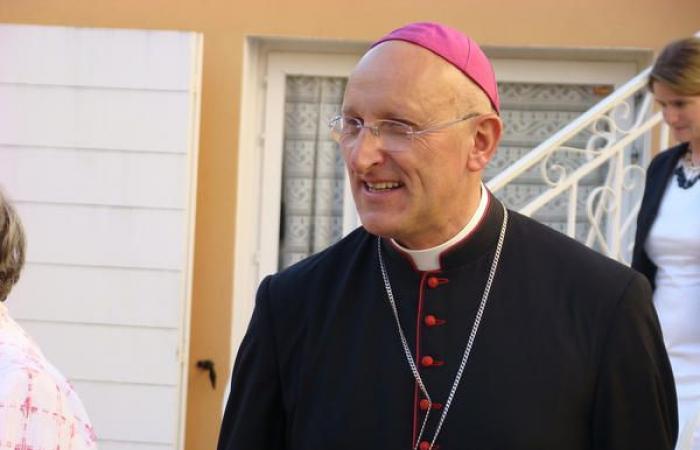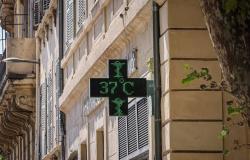The bishop of Fréjus-Toulon therefore resigned at the request of the pope. In a fresh interview given to Famille Chrétienne, he returned to the reasons for his resignation, but also to his episcopal career.
Here are excerpts from this interview
You are resigning after twenty-five years as bishop at the head of the diocese of Fréjus-Toulon. Were you pushed into it?
I handed over my pastoral charge following discussions with the Roman congregations and the Pope. He encouraged me to stay after the appointment of a coadjutor of the diocese, Mgr François Touvet, in November 2023. A year later, he asked me if I could resign from my position as bishop at the head of the diocese of Fréjus-Toulon. My mission does not belong to me, I get it from the Pope, like any bishop. It was entrusted to me by him, it was taken away from me by him. I therefore sent a letter of resignation to the Holy See, by mail, on December 31. I announced this resignation to the clergy on January 7. It will be official when the Pope formally accepts it.
What are you accused of?
No new incriminating evidence has been communicated to me. The reasons for my resignation are the same as those expressed at the time of the appointment of the coadjutor. I am mainly criticized for overly welcoming communities or priestly and religious vocations, particularly from the traditional world, as well as dysfunctions in the economic and financial management of the diocese. Certainly, I have launched many initiatives. The majority of them have borne fruit and are perennial. However, some – I think around 10% – have been problematic. When we launch projects, we always take a risk. I sometimes lacked discernment or support. However, when dysfunctions were identified, I always took the necessary canonical and administrative measures.
What state of mind were you in when you submitted your resignation?
I was ready to continue my mission. This sudden change of direction therefore constitutes a test and a moment of questioning myself. I was then able to experience a feeling of incomprehension or injustice regarding everything we had deployed. However, I never wanted to sink into discouragement or rebellion.
Mgr Rey also speaks on the question of so-called traditional communities for which he has been accused of complacency:
Was the presence of traditional communities the main reason for your resignation?
I have indeed been criticized for being too close to the traditional world. It constitutes a nebula, crossed by different currents very distinct from each other. Some “trad” circles are closed in on themselves and cling to rituality in an unadjusted way, which deviates from the Second Vatican Council. A large part are more open.
The traditional sphere must be in the Church, not apart. In my diocese, I was keen to ensure that it did not stagnate in a parallel world. Its integration is a real challenge, but these groups must be part of a broader vision of the mission and life of the Church.
(…)
Mgr Rey returns to the unprecedented situation of long coexistence with a coadjutor and his episcopal record
Bishop Rey also believes that Rome considered the period of coexistence between the diocesan bishop and the coadjutor to be too long.
Did the arrival of Mgr François Touvet, appointed coadjutor bishop of the diocese after an apostolic visit in February 2023, contribute to this decision?
Our relations are peaceful (…). Rome perhaps felt that this three-year period was too long and that the collaboration had limits.
Mgr Rey recognizes a “contrasting assessment”.
What assessment do you make of your episcopate?
Like any assessment, it is contrasted. To my credit, I tried to inspire a missionary momentum in the diocese, in continuity with my predecessors, notably Mgr Joseph Madec. With nearly 250 active priests, spread across 150 communes, I not only aimed for administrative coverage, I also wanted to initiate a missionary process. I am thinking in particular of the training of priests in conjunction with the laity, the establishment of new parishes, as well as the welcoming of new charisms (…) Some communities were unable to put down roots in the Var and had to leave. Others remained and bore fruit.
Was the suspension of the ordination of ten future deacons and future priests, in June 2022, already a means of pressure on the part of Rome to encourage you to resign?
This blocking of the ordination of six future deacons and four future priests from Castile has caused a lot of incomprehension within the diocese. This situation was, in fact, experienced as a means of pressure from the Roman authorities (…). According to the criticisms of some, I lacked discernment or rigor. Today, of the ten called to orders, nine have been ordained in recent months.
What are you going to do now?
I don’t plan to retire, that’s a word I don’t know, but probably a spiritual retirement. This time of rereading my twenty-five years of episcopate will allow me to gain height and depth. My priorities remain to support places for incubating missionary initiatives according to five priority pillars: respect and defense of life and the family, the commitment of vulnerable people, issues relating to education and culture, the Christian presence in the media and communication and, finally, the Christian and pastoral formation of those responsible. In my soul, in connection with the Community of Emmanuel, I have always been at the service of evangelization. I will no longer be able to carry out this service in the Var, but I am in negotiations to see what mission can be entrusted to me.
How do you see the future of the Church in France?
I remain optimistic while being struck by the dechristianization taking place in France. I also perceive how this period of institutional weakening of Christianity, experienced by numerous abuses, constitutes a time of purification. New generations are assuming their Christian identity, their faith, and want to be witnesses to the Gospel.
(…)
“There is often a lack of leaders and pastors who are prophets”
At the end we will note a very interesting observation:
What is missing in the Catholic Church today?
There is often a lack of leaders and pastors who are prophets. We cannot simply maintain the existing system, as if parishes were in palliative care or reduced to a purely managerial logic. The Church needs to find a new lease of life, to value isolated experiences and to encourage projects, by agreeing to take risks. Initiatives do not always come from the head.
(…).






